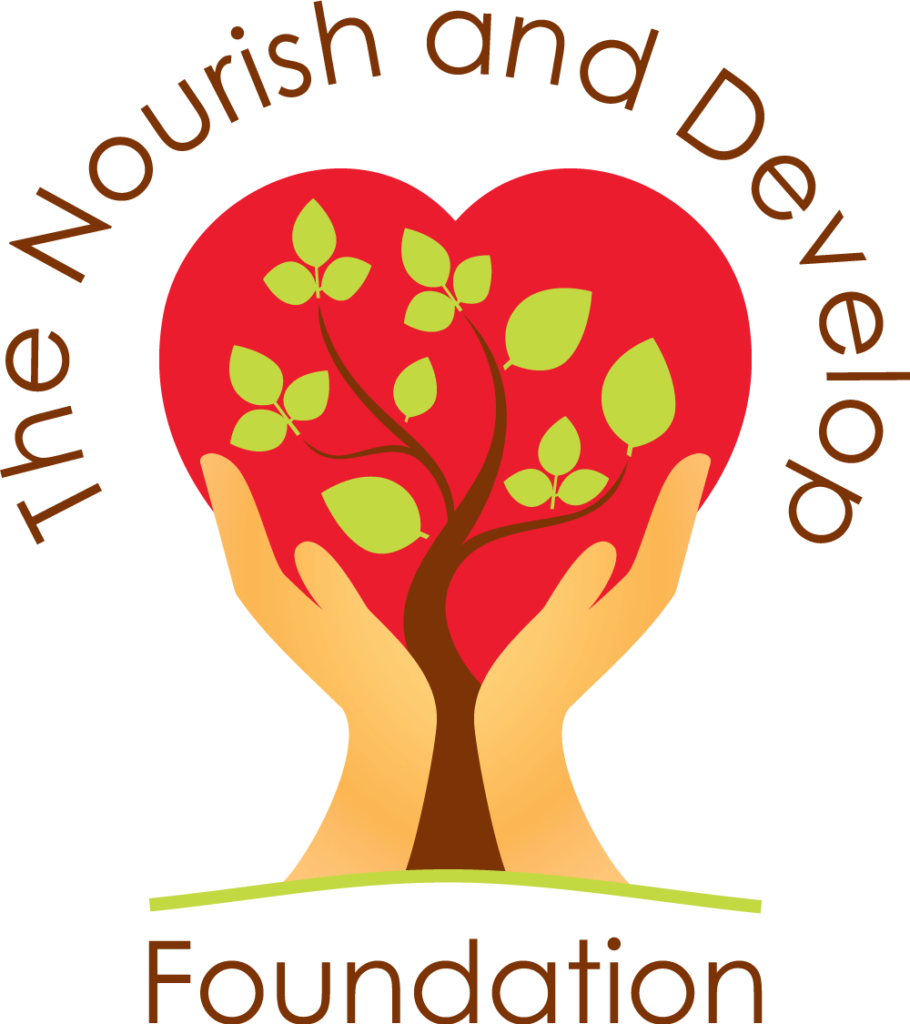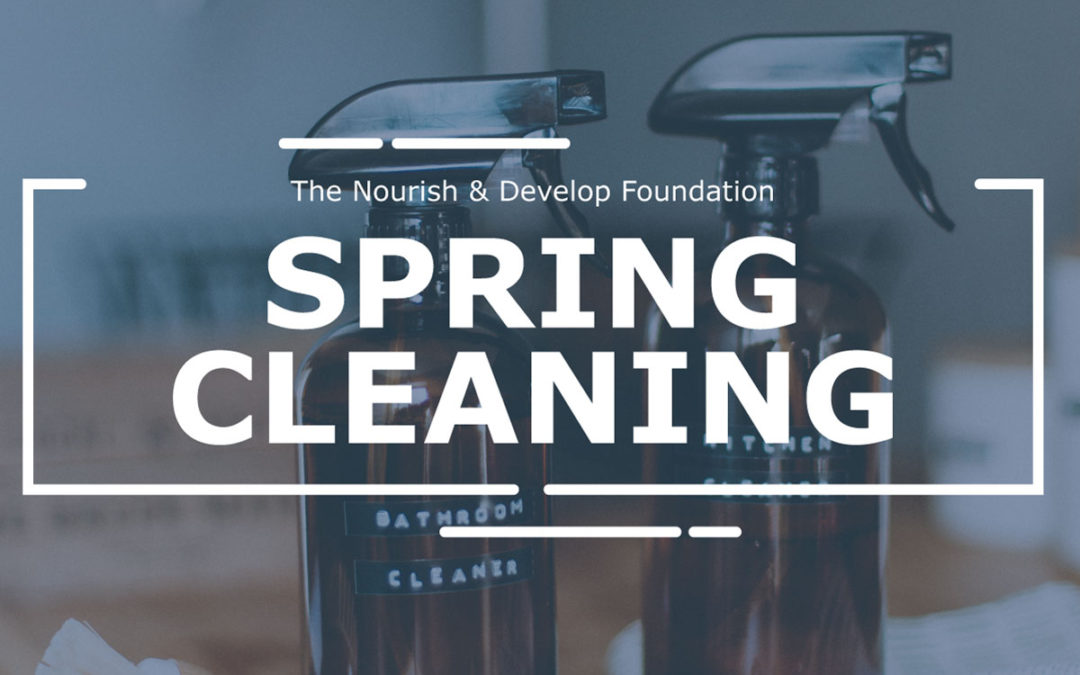Around this time last year…
the rapid spread of COVID-19 was declared as a global pandemic and soon after, Ontario entered a ‘state of emergency’. In the days, weeks, and months that followed we were constantly dealing with the immediate impacts of new protocols and changes to our daily activities including work, socialization, and childcare. Therefore, when many of us think back to springtime 2020, we might remember it is a time of major transition, loss, or even chaos. It disrupted the natural rhythms and feelings that are associated with the shift between seasons, so today we celebrate your resiliency and adaptation and invite you to declutter both your surrounding environment and mind!
Spring Cleaning for Your Mental Health
Physical, emotional, and digital organization helps to decrease levels of depression and anxiety. Clutter is visually distracting and can serve as a reminder of unfinished tasks, so taking control of our space brings a sense of accomplishment. In addition, decluttering naturally stops our brains from multitasking and we can better process information because there is less fog. It serves as an act of self-care, as items can represent or invoke emotions, therefore cleaning can be used as an outlet to purge negative feelings.
Other advantages for well-being:
- Reduces stress
- Improves sleep
- Boosts happiness
- Creates exercise
- Enhances focus
- Renews energy
- Strengthens immune system
Suggestions
While physically cleaning our space is important, spring cleaning can be much more than organizing, scrubbing, and dusting. There is a psychological component to removing anything that is getting in the way of our potential and finding connection in what we welcome into our lives.
your short-term and long-term goals.
Being able to visualize where you would like to be and having a plan to get there gives you direction and purpose in life to move forward.
space for a creative area. This could be where you read, write, paint, make music, craft, etc.
Environmental psychology is a branch of social science which focuses on the relation between our surroundings and how they influence our thoughts, emotions, and behaviours. It has found that what we do with a space can boost creative thinking.
Creativity has a number of benefits for our mental health so giving it a place for it to happen brings us one step closer to engaging in activity.
from e-mails that you end up automatically deleting. Maybe there was a time where you signed up for a newsletter to get a discount but never used the company again.
While you are at it, delete apps on your phone that do not get used and take up space. Digital clutter carries the same weight as physical clutter.
how you perceive getting rid of things. If you look at it as discarding or disposing of, it can make you more inclined to keep items you do not necessarily want or need.
Pick up an item and ask whether it serves a purpose or sparks joy. Therefore, you are choosing happiness vs. throwing things away.
unwanted patterns. Along with the dust and dirt, get rid of a habit that is hindering you from being at your best.
Identify what triggers your behaviour and put alternative coping tools in its place. For instance, if you are trying to curb late-night snacking, have a homemade snack ready to go so you do not head for the bag of potato chips.
Start small, give it time, and don’t be afraid to ask for external support. Whether it be a trusted friend or professional, having someone to vent to or to help you hold yourself accountable can cheer you on.
when you can.
The saying ‘one man’s trash is another man’s treasure’ lives on for a reason. If you are not using something, someone else likely can.
For example, old towels can help out local animal shelters, clothing and household items are accepted at The Thrift Hub which gives back to our community, and hobbyists can use things like scrap parts and mismatched wool collections for their projects.
Donating can make us feel better about where our belongings end up, giving them new life.
check-ups and appointments.
Even when nothing is bothering you, regular check-ups for dental cleanings, medical appointments, and personal care salons can be preventative against potential future problems.
Reach out to us at (705) 432-2444 for food access or to get connected with mental health and health services.
items that are expired and can cause you harm.
Some often-missed products include make-up and medications. For make-up, check with the brand to see if they take back empty containers to recycle (some even offer rewards in exchange!) and return expired filled prescriptions and over the counter medications to your local pharmacy – do not throw them in the garbage where they could end up in the wrong hands or put them down the drain/toilet where they can disrupt the eco-system.
to engage in self-care.
Though cleaning and organizing can be an act of self-care, it can also be a heavy process in addition to the existing transitions taking place this season, so taking care of yourself is priority or else it can take a toll on your mental health.
Don’t overexert yourself and do make time for relaxation and for activities you enjoy and keep you motivated.
giving gratitude. Part of cleansing and letting go is replacing the items and activities you disconnected from with what will better serve you.
Acknowledge what you are grateful for daily, not just on Thanksgiving. In the context of spring cleaning, you can also recognize what each item you owned at some point or another did for you.
Perhaps it was an article of clothing that no longer fits but made you feel confident when you wore it to an event or a book that comforted you when you were feeling down. Thank those items and accept that their job has been fulfilled.
natural hacks
Use aromatherapy in safe ways other than through a traditional diffuser.
Essential oils like lemon, lavender, and tea tree are particularly helpful when used for cleaning purposes.
10-20 drops per 2-3 cups of solution is enough to work the properties of the oils and 5 drops per 3 cups of solution is recommended for a gentle scent. Essential oils can be added to things like laundry detergent, homemade cleaning pastes, or to a linen spray.
Choose in season, local produce.
It supports your community, reduces environmental costs associated with transportation and storage, and can be more nutritious since it is being harvested at its peak. Spring offers foods like rhubarb, strawberries, asparagus, and greenhouse tomatoes.
Try out our Good Food Box program for monthly bundles with accompanying recipes!
cleaning tips
According to Marie Kondo, organizational consultant, and founder of the ‘KonMari’ method, it is best to clean by category of items rather than by location.
For instance, instead of washing the kitchen sink, kitchen floors, and tea towels, spend an hour or so deep cleaning all the sinks in the house or mopping all the floors, or laundering the tea towels with bathroom towels.
Try using or creating a chart like this!
Sources:
https://www.camh.ca/en/camh-news-and-stories/spring-cleaning-for-your-mental-health




